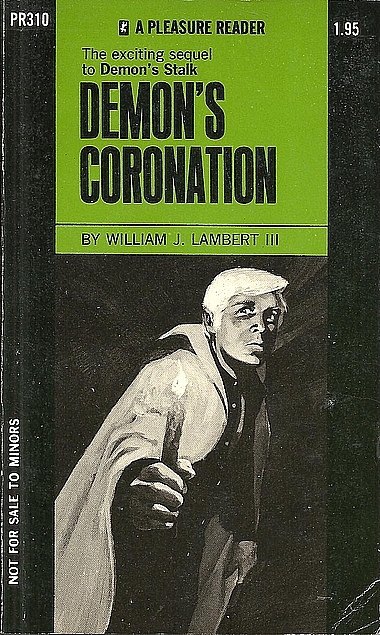
William Maltese, everyone! An absolute honor to have you spend time with us.
For those unfamiliar, Maltese is the author of 200+ pulp novels from 1969 to 2020, some gay, some straight, and all spread wide under the guise of an astounding 36 pseudonyms. His oeuvre includes the world’s first gay werewolf novel, Valley of the Damned (1971), a sexy gay anti-Christ series starting with Demon’s Stalk (1970), and a naughty intergalactic romp called Starship Intercourse (1971). Though his vintage pulps are now collector’s gold (Starship Intercourse was spotted online at $1,500), his recent novels are plentiful and readily available.
JUSTIN: Let’s start with sex. You’ve written about doing the dirty during the free-lovin ’60s, the AIDS epidemic, into the technology age of Grindr and everything in between. What, if anything, has changed about sex?
WILLIAM: Well, because of AIDS, sex has definitely become less fun. It used to be more of a group-grope, free-wheeling, anything goes romp in the hay (or on Cisco-ed rubber sheets), with a lot more casual sex, group sex, spontaneous sex, just sex. You could cruise the public lavatories one night, go to the steam baths the next night, hit the parks after dark for meets-up with strangers and have no objective in mind other than your own – eat me, fuck me, or vice versa – without fear of having a death certificate issued upon each encounter. If you used a prophylactic, it was only as a preventative against syphilils or gonorrhea, either of those curable with a couple of shots from a doctor. More often than not, it was considered an insult to your partner to raincoat your cock. These days, of course, a rubber has pretty much become de rigueur.
On the opposite side of that coin, in this more electronic age, it’s a helluva lot easier to hook up with someone you genuinely find attractive and is into the kind of sex you’re into, without having to cruise the general population, night after night, hoping for the best. Online you can learn just about everything you need to know about a potential sex partner without needing experimentation (although experimentation can be fun). I’m talking the sex life of the everyday-Joe, here. One could always find what one wanted, to do what one wanted, via call-boy services, but one had to pay for them, where these days cocks, asses, and the guys who go with them, are there for the taking.
JUSTIN: What’s your thoughts on current erotic novels? How have you adapted your style for today’s audiences?
WILLIAM: No doubt the erotic novel has evolved since the Golden Age of Pulp Fiction. Back in the day, there was no internet to Google “gay men fucking gay men,” “men fucking women,” “women humping women,” the erotic novel was used as turns-on. You read them to get boners, or wet cunts. A lot of time, you had one hand on the erotic novel and another on your cock or pussy. Which is why they were called “one-hand reads”—a designation I copyrighted, by the way. Today, the erotic novel is less of a turn-on, because everyone has available the Internet which can provide sexual visuals of any kind that doesn’t require one’s imagination. No need to have a book in hand when you can just cue in the video of a person masturbating, two people fucking, two people sucking, two or more people sucking and fucking, call up an additional man or woman for some voyeuristically group sex, and … yes … a picture is worth a thousand words becomes decidedly true.
Another decline in readership can be attributed to so much of what was once soft porn having become incorporated into so many mainstream novels. You can now find detailed sex in the books of the New York Times best-seller list without searching out “Daisy Does Dallas” in some sleazy back-room sex store.
And, of course, there’s the major shift that has occurred in the gay novel. Today they’re mainly written for women by women. Go figure! So, there’s a lot more lovey-dovey, happy-ever-after, emotions required in the writing. At least if you want your book published. I think the name of my main gay-novel publisher, these days—MLR (Man Love Romance Press)—pretty much says it all. If I want to publish a gay book today that’s not love-oriented—no happy ending required—there are mainstream publisher where I can submit it, but these are few and far between.
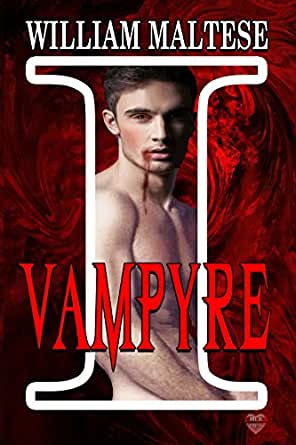
JUSTIN: What’s your opinion on plot? Fans clearly enjoy your stimulating gifts as a writer, but I think many keep coming back for your characters. What’s your technique for balancing bedroom moments with a traditional character arc?
WILLIAM: There is definitely the part of a novel that’s plot. More so today than in the old days. During the heyday, you started with sex, you ended with sex, and plot was kind of an afterthought required so that the censors wouldn’t come knocking on your door and haul your ass off for writing hard-core pornography. Plot was what divided soft- from hard-core porn. The latter a no-no with legal repercussions, to be avoided at all cost.
Today I’m not sure there are any old-time erotica left. It’s more mainstream/soft-porn hybridizations. Fifty Shades is a good example. I’ve shifted a good deal of my writing to mainstream as well. I remember when Harlequin House, the giant of hetero-romances, pulled me in to do the number #2 book, Love’s Emerald Flame, of their newly launched SuperRomances series, that were longer and sexier. It was because of my background in erotica that had them thinking if anyone could sexy up their novels, I could. And, of course, I did.
JUSTIN: I’m compelled by your gothic/horror novels, such as Valley of the Damned (1971) and recently I, Vampyre (2017). Who are your horror influences, and why do you think sex and horror go so well together?
WILLIAM: I read Bram Stoker’s Dracula at a very early age, and enjoyed it tremendously. I also read Mary Shelley’s Frankenstein and didn’t enjoy it all that much; it came off way too high-brow, in my opinion. A monster reciting the classics in literature? Just didn’t seem all that horrific to me.
Regarding horror in general, I’ve always found there’s something sexual in having the shit scared out of you (that boner-producing shot of adrenaline’s a real high). My ventures in gay erotical horror, as regards the two books you’ve mentioned, Valley of the Damned came about because I was looking for subject matter that hadn’t been already used in pulp fiction, and horror just happened to fit the bill. At the time it didn’t occur to me that I was writing literature’s first gay werewolf novel. I, Vampyre resulted because there are a lot of women readers of gay fiction out there who genuinely adore vampire stories, with happy-ever-endings, and I thought I would oblige. Check out my Revamping Delaney for a better take on women readers and gay vampire novels, and the efforts of the gay-book industry to give women readers what they want – often to the detriment of what might have turned out an entirely different novel.
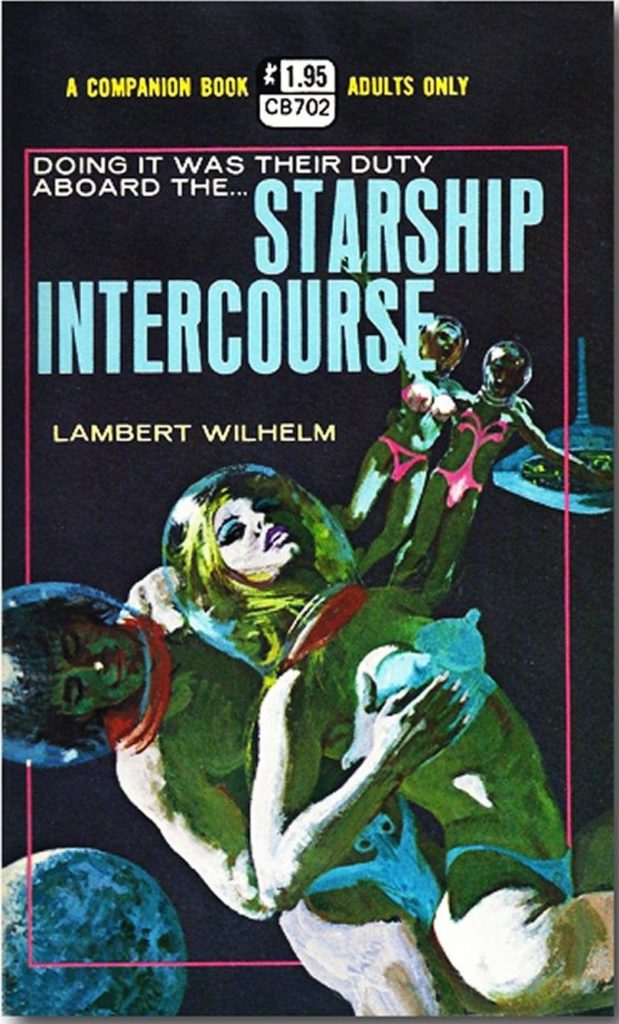
JUSTIN: In 1971 you wrote a column for The Advocate called “It’s Hell Being Gay and Handicapped” about a young man who felt “creeped out” that some guys were only attracted to him because he lost a leg in the war. It’s a fascinating interview that’s unsettling, oddly sexy, and profound. It intertwines topics of fetishism and prejudice to reveal much about the (bizarre? problematic?) nature of sexuality. This is a recurring theme in many of your novels, such as The Young Master (1970). What keeps you returning to this intriguing dilemma?
WILLIAM: What keeps me returning to it is simply that it is an intriguing dilemma. I specifically remember that particular interview, since it was excerpted in Long Road to Freedom: The Advocate History of the Gay and Lesbian Movement, as an article indicative of 1971 (the Vietnam Era). I was intrigued, since I knew no veterans who had come back disfigured by the War (I’d served out my enlisted three years in locales where I wasn’t endangered by bombs and exploded shrapnel). I did know two people in the Seattle bar scene who had a fetish that revolved around missing limbs, which I’d always found fascinating although not erotic. I could relate, of course, since I had my own bizarre aphrodisiacs. Notably, the ability to get a boner at almost any waterfall. I’ve gone thousands of miles out of my way to see one (you can’t beat Iguassu in South America; although, I did do a lot of “beating” there). And many a dagger has provided me with an erection. While I can always call up Freud, and a phallic reference, to explain the dagger-fetish, I’ve still no clue as to why I find waterfalls such a turn-on.
As a writer, and a Gemini, I’m constantly fascinated by just what it is that can turn someone on, while it simultaneously turns someone else off. Motivations are so mysteriously interesting and make for a great contribution to any story-line.
JUSTIN: I have to ask about your output. In that same Advocate article you describe writing by the beach, by the pool, and even in gay bars—though you confess to being “distracted by other things” in that particular location. Are you always writing? What’s your secret?
WILLIAM: I have spurts—no reference to what goes on between my legs, but merely periods where I don’t write. I can’t tell you how easy it is for me to just lie out in the sunshine and do absolutely nothing but admire the scenery, including attractive half- or all-naked males and females, and do nothing else than swing in some hammock and down multiple tropical drinks complete with miniature umbrellas. Or just marathon read books authored by others than I. Or nap. Or jack-off to Ravel’s “Bolero.”
These periods of non-writing have allowed me to travel the world (literally around), and resume writing when the next urge (spurt) to do so happens to happen. A lot of my books evolved from my assumed-dormant days, in that most of my early pulp fiction was mailed in from spots around the world, my royalty checks picked up at world-wide American Express offices, while I missed out on all the turmoil back home (U.S.A.) that saw my fellow gay-erotica writers, and publishers, being rounded up and put in jail.
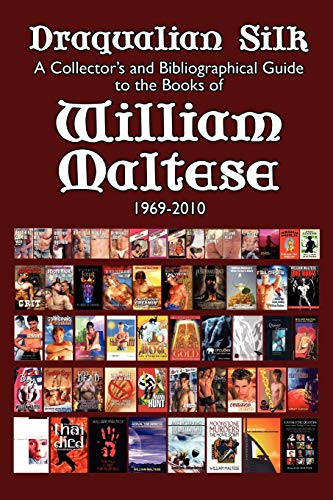
JUSTIN: In Draqualian Silk (2010), a 300 page book cataloging your unbelievably large output, you describe a youth that is as exotic and sexy as your novels. How necessary were these experiences to your success as a writer?
WILLIAM: There’s no doubt that my youth (exotic and sexy, do you think?) contributed greatly to my success as an author. From the outset, I was borrowing on things I’d personally experienced – my very first article, published in the men’s magazine “Argosy” – drawing on the expedition I was on, between my junior and senior years in university, to hunt for Inca treasure – to find high humidity, flesh-eating plants and insects, as well a bad case of crotch rot; although, it was only the Inca gold in which the magazine was really interested. Certainly, my extensive travels have been a boon. You can pick out any of my books – mainstream and/or erotic – and find some aspect of tidbits I’ve gleaned along the way to where I am now. However, that pertains more to locales and indicative peoples and food and drink, than it does to sex. Admittedly, I’ve not done all of the sex about which I’ve written (I’m more of a voyeur). I remember one party-goer, a fan, telling me that if I didn’t slow down sex-wise, judging from my personal experiences in my books, that I’d never reach twenty. I just happened to be twenty-eight at the time.
JUSTIN: Looking back on what scholars call the “Golden Age of Gay Fiction,” how significant do you think the “happy ending” was to the social impact of these novels? And by happy ending I mean both the unabridged sex and conclusions where the character journey ends on a positive note.
WILLIAM: The only happy ending required of the early gay pulp novels was that the main character no longer needed to die at the end, as was usually the case for any gay character in any gay or straight novel that preceded the pulps. Certainly, there was no written law that any protagonist came to book’s ending on a positive note. And, actually, I miss those days, in that those were far more based in reality than hero and heroine, or hero and hero, or heroine and heroine, riding off, happy as clams into the sunset.
JUSTIN: As someone who loves those classic pulp novels and is frustrated by their limited remaining existence in the world, I have a technical question: who holds the copyright to your early publications? What would it take to get them back into print?
WILLIAM: While copyrights have been argued over the years, a lot us simply signing over all rights to those early pulps to the publishers, I do believe that those copyrights have pretty much legally reverted to us authors. Getting those books back into print, however, even with the author’s permission, isn’t an easy task. Firstly, those early pulps are hard to find; they were meant for one-hand reading, often thrown into the wastepaper basket along with the cum-soiled tissue paper at the end of a read. Secondly, if found, they’re usually in the catalogues of rare-book dealers at exorbitant prices. Last time I saw a copy of my Spaceship Intercourse, it had a whopping $1500 price-tag. Thirdly, the books, when found, and in decent condition, risk being destroyed during the re-issuing process unless someone wants to go to the bother of typing them out in Word. Lastly, there’s the question of whether or not re-issuing would be profitable for whomever took over the daunting task. There are so many alternative sources of turns-on, these days, that it’s believed by many that there aren’t enough interested readers, like you, willing to put out the money to provide profitability with reprints.
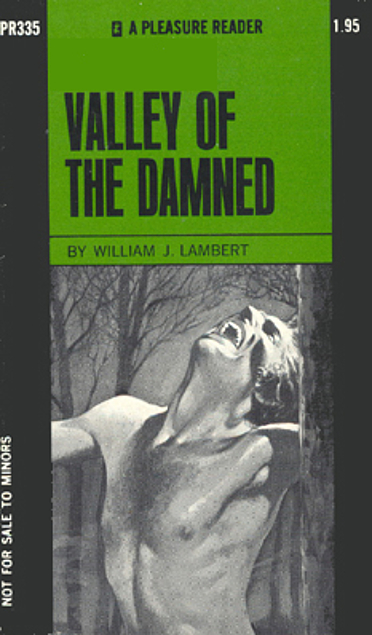
JUSTIN: You might be surprised by how many would love to have access to these rare “Golden Age” publications! I know I would be first in line, and likely many others who follow this site. Keep us updated should these become available again!
WILLIAM: Of course!
JUSTIN: Okay, last question: out of all your novels, do you have a favorite?
WILLIAM: In most instances, I find myself looking upon my books as children the sooner out of the house and on their own, the better. I’ve never been one of these authors who thoroughly enjoys the editing process. Although I do recognize that proofing the early pulp novels was a necessity on my part in that most of those publishers expected to be able to send the book right to press without employing any expensive proofer at their end. Even today, having often shifted to mainstream publishers, and merely providing gay protagonists (or, more preferably bisexual protagonists), to the general reading public, I’ve found mainstream publishers are extensively into proofing just to come across as more professionally polished than those now so-many self-publishing outlets “out there.”
That said: I’m exceedingly fond of my mainstream Stud Draqual mystery series A Slip to Die For (1999) and Thai Died (2003), with a bisexual protagonist with whom I can relate on many levels.
I’ll also mention my magic-run amuck series William Maltese’s Flicker #1: Book of Answers (2010)—by way of plugging that its sequel—William Maltese’s Flicker #2: Book of Ascendancy will be due out later this year (it’s now in layout). I grew exceedingly fond of this book’s gay teenager lovers who are the wards of a vampire.
And, certainly, I can’t forget Slovakian Boy (2004), which contains a lot of my romp through Slovakia while recording the life of a U.S.-destined porn star.
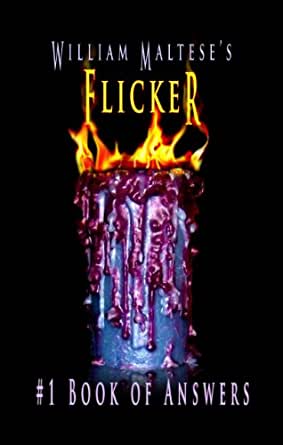
JUSTIN: Again, William Maltese, I cannot thank you enough for this interview. Your novels have brought joy, peace, and climax to six decades of readers. Keep ’em comin’!
WILLIAM: My pleasure, Justin, in that it’s always nice to know that those early pulps aren’t forgotten, along with us authors who wrote them.
